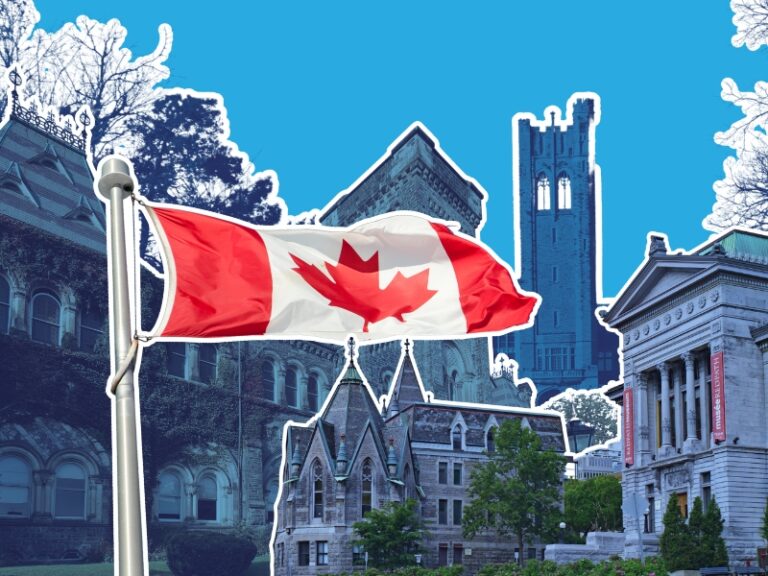Contact Us
[email protected]
China’s Best MBAs for International Students: A Deep Dive into the 2025 Rankings

China’s MBAs are going global—offering world-ranked programs, English instruction, and elite partnerships in one of the world’s most dynamic business ecosystems.
As global demand for accessible yet high-quality MBA experiences grows, China’s business schools are rising to prominence – especially among international students seeking to immerse in one of the world’s most dynamic economies. Once considered a niche alternative to Western institutions, many of China’s MBAs now feature in the rankings of the world’s top 50, with programs accredited by leading global bodies and taught in English. Lower tuition, strong career outcomes, and partnerships with elite institutions like MIT and INSEAD have positioned China as a serious contender in graduate management education.
Here’s a snapshot of the best ranked MBA options in China for global learners, anchored by the 2025 Financial Times Global MBA Ranking and other credible sources. If you’re curious about rankings, expected salary, tuition fees or , we got you covered here.
Many of China’s MBAs now feature in the rankings of the world’s top 50, with programs accredited by leading global bodies and taught in English.
The leading MBA programs in China’s top 50 FT-ranked schools are all accredited by AACSB and EQUIS, two of the world’s most rigorous business school standards. These accreditations guarantee that the programs meet global benchmarks for teaching quality, faculty, and student outcomes. All of the MBAs on the list offer at least one fully English-taught MBA program.
China Europe International Business School (CEIBS), Shanghai
CEIBS is ranked #12 globally in the Financial Times 2025 rankings – the highest among Asian and Chinese MBAs for the 9th consecutive year. CEIBS offers an English-taught 18-month full-time MBA and a part-time global EMBA for executives. In 2024, the EMBA was ranked #1 in the world in Financial Times rankings.
At CEIBS students can choose between a general business management MBA, or select a concentration in either Finance, Marketing, Digital Business or Strategy Management.
Tuition is approximately USD 68,000 for the 16-month full-time MBA program and USD 118,000 for the 24-month Executive MBA.
Percentage employed after three months: 90
Salary percentage increase: 164
Shanghai University of Finance and Economics (SUFE)
Another Shanghai-based MBA, SUFE is ranked #15 globally in FT 2025. The MBA reports exceptional outcomes with a 99% placement within three months. It’s also ranked 4th-best for Career Progress, and 6th for Value for Money.
Students at SUFE can also enjoy access to a selection of student clubs, such as investment and financing clubs, entrepreneur club, and sinology clubs.
While the 2025 tuition costs are not currently accessible, as of 2023 the tuition costs were RMB 144,000/year. That translates to around USD 40,000 for a two-year MBA.
Percentage employed after three months: 99
Salary percentage increase: 195
Peking University – Guanghua School of Management
Coming up third is Guanghua School of Management, which is a part of Peking University. The MBA is ranked #25 globally in the FT 2025 ranking.
Guanghua offers an international MBA taught in English, alongside Chinese-taught programs. Concentrations include finance, innovation and international strategy.
The tuition fee for the Guanghua Global MBA Program taught full-time in English is USD 25,860.
Percentage employed after three months: 100
Salary percentage increase: 138
Fudan University – School of Management
Fudan University is ranked #30 globally in FT 2025. The International MBA is created in collaboration with MIT Sloan and runs two years in English. Fudan is among the leading MBAs in Asia in career services, ESG & Net Zero teaching.
The international MBA costs approximately USD 51,000 for a 22 month MBA.
Percentage employed after three months: 95
Salary percentage increase: 209
Tongji University – School of Economics and Management
Tongji University debuted impressively at #31 globally in FT 2025. Its MBA shows standout outcomes: 238% increase in post-MBA pay, 96% placement rate, and highly rated career services and alumni support.
MBA students at Tongji University can choose between concentrations in project management, real estate, service and operations management, and finance.
At around USD 43,000 for the two-year MBA, this is one of high value for money MBAs. This is also reflected in the salary- and employment statistics.
Percentage employed after three months: 100
Salary percentage increase: 238
Hong Kong University of Science and Technology (HKUST), Business School
HKUST in Hong Kong is ranked #36 globally in FT 2025, consistent with prior years.
HKUST offers English-taught programs oranging from 12 to 16 months, either full- or part-time with strong research credentials and international orientation. HKUST offers electives in General Management, Finance, Marketing, Consulting, Business Technology and Analytics, and Entrepreneurship.
The full-time MBA program costs approximately $76,800 USD, while the part-time program costs around $62,720 USD. It’s worth noting, that the visa proces differs in Hong Kong compared to China. Read more about applying for an MBA visa in Hong Kong here.
Percentage employed after three months: 93
Salary percentage increase: 143
For internationally oriented students Tsinghua University’s Global MBA is also worth looking into. Tsinghua University offers dual MBAs with MIT Sloan and INSEAD, giving access to a dual alumni network and high-quality programs.
What International MBA Applicants Need to Know About Visas
For international students eyeing MBAs in China, obtaining the correct visa is a crucial early step. The type of visa, depends on the programme length:
- If your programme lasts more than 180 days, you’ll generally need an X1 visa.
- If it’s shorter than 180 days (e.g. for a short executive programme, exchange or as a visiting scholar), an X2 visa may be issued.
After being admitted to a Chinese MBA program, the university issues an Admission Notice, which officially confirms your acceptance, and a JW202 form (also called the “Visa Application Form for Foreign Students to China”), which is the government-issued document required to apply for an X1 student visa for programs longer than 180 days. After receiving the Admission Notice and JW202 form, you submit these documents—along with your valid passport, completed visa application form, and any required health certificates—to the Chinese embassy or consulate in your home country to apply for the X1 student visa.
It’s worth noting that aceptance to an MBA program in China does not automatically guarantee a visa, but in practice, most admitted international students do get their visas approved if they follow the process correctly.
For China-oriented MBA students, the appeal lies in lower tuition compared to the U.S. or Europe, faster payback times, and unparalleled exposure to Asia’s fastest-growing markets. The main hurdles – such as navigating visas, language, and cultural adjustment – are increasingly offset by strong international student services. With consistently top-tier rankings, English-taught curricula, competitive tuition structures, and strong career outcomes, China’s foremost MBA programmes have evolved from national or regional options to global contenders.





